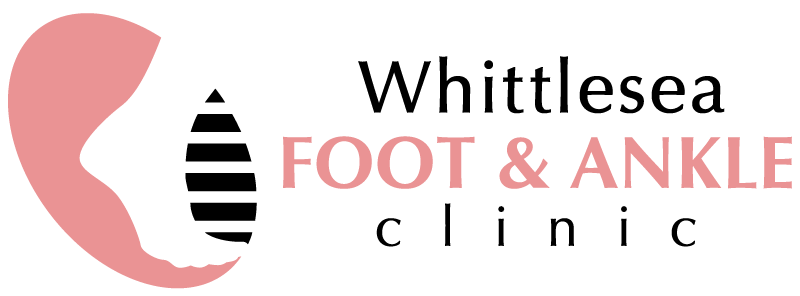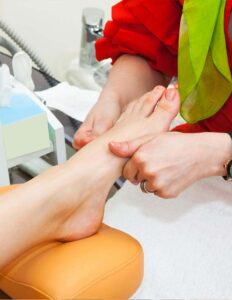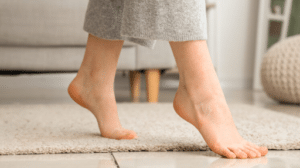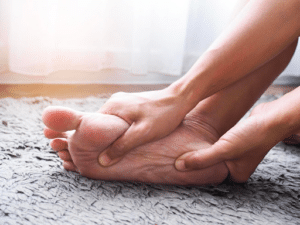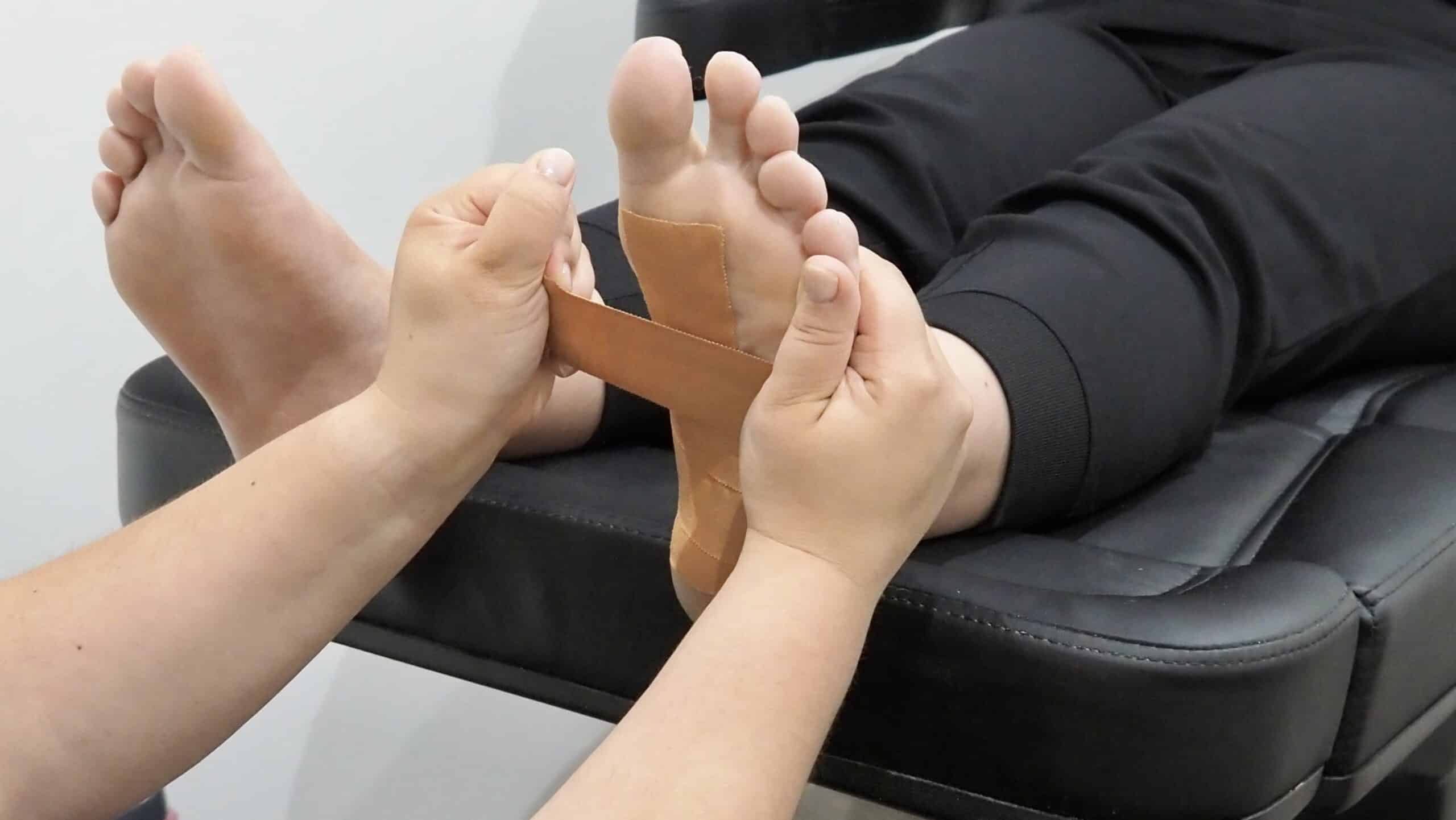Ingrown toenails are a common condition that usually affect your big toe. An ingrown toenail is when a sharp corner, curved nail edge or a nail spike has broken the skin and cause pain and swelling to the affected toe. Most commonly, the big toe is usually affected, but can occur to any nail. Most people find that ingrown toenails cause pain when wearing enclosed shoes, discomfort, and can become infected. You can often take care of an ingrown toenail yourself but you may need to see a podiatrist. This is especially important if you have diabetes or other foot related problems.

There are many factors that could contribute to ingrown toenails. Common causes are usually a natural excessive curvature of the nail, badly fitting footwear, trauma to site or poor nail cutting techniques.
If you suspect you have an ingrown toenail, it is recommended to have a podiatrist assess and treat it accordingly. Podiatrists are also highly knowledgeable and are also able to give you advice and education on preventing an ingrown nail from reoccurring.
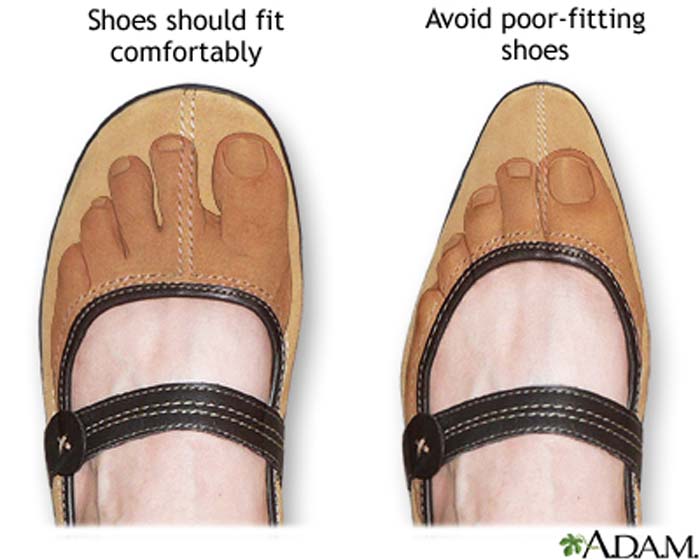
Sometimes if the problem is minor it can be quickly treated with a few appointments of clearing and packing the affected nail edge. However, in some more severe cases, further intricate treatments are required. If an ingrown nail becomes a persistent or ongoing occurrence, nail surgery could be an option that you can explore with your podiatrist.
Nail surgery, which involves either a partial nail avulsion (PNA) or a total nail avulsion (TNA) is a more permanent treatment option where the affected nail edge is removed completely. This will ensure that the affected nail edge does not grow back and reoccur with the same issues previously faced.
Tips
- If you suspect you have an ingrown toenail with an infection, bathe the affected foot in a small basin with warm salty water for no longer than 10-15 minutes. Air dry and cover with dressing. This may be done every day or second day. It is advised to be checked by your GP as they can prescribe antibiotics if required.
- Podiatrists are highly trained with the foot and ankle and will be able to give you advice on the most suitable treatments for you. They can also give you tips to prevent this from reoccurring in the future.
- Be mindful of which shoes you are wearing. Narrow toed shoes or high heeled shoes can place excess pressure on the toes and make the problem worse and possibly more painful.
- It might also be beneficial to take a break from physical sports where the feet are heavily involved as this will help prevent any more trauma to the area.
- Try to not pick at or cut the ingrown nail yourself. It is best to have a highly trained podiatrist do this for you as they have the correct tools and expertise in this field.
If you think you may have an ingrown toenail, or would like more advice on this condition, please contact our clinic on 8468 2411 and one of our podiatrists will be able to help you.
